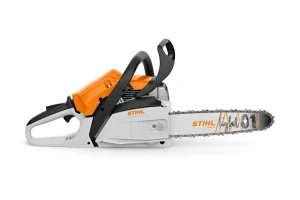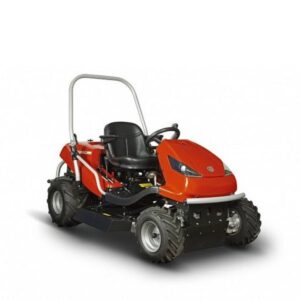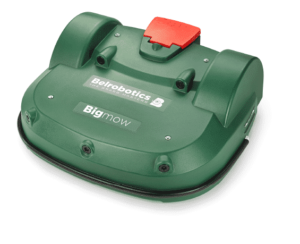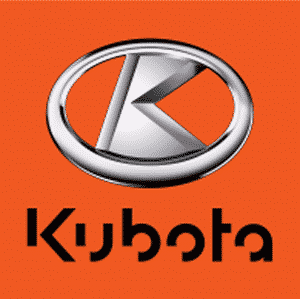Understanding the Impact of E10 Petrol on Garden Machinery
With the switch from 5% ethanol (E5) to 10% ethanol (E10) in standard unleaded petrol during 2021, there’s a growing need to understand how this change affects garden machinery and small petrol-powered equipment. While this move helps reduce CO2 emissions, the higher ethanol content poses challenges for engines, fuel systems, and overall machine performance. This blog explains the potential effects of E10 fuel and offers practical solutions to protect your equipment.

What is E10 Petrol?
E10 petrol contains up to 10% ethanol, a renewable biofuel made from plant materials. While it’s more environmentally friendly than fossil fuels, ethanol’s hygroscopic nature (ability to attract moisture) can cause several issues in engines, especially in machinery not designed for it.
Effects of E10 on Garden Machinery and Small Engines
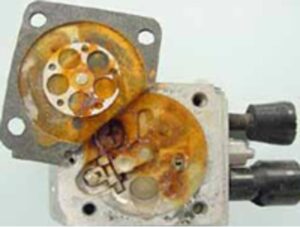
- Fuel System Damage:
- Ethanol attracts moisture, which can mix with fuel and form corrosive ethanol-water solutions.
- Rubber components like fuel lines, gaskets, and carburettor diaphragms can degrade faster.
- Carburettor Issues:
- Ethanol deposits can block carburettor jets.
- Aluminium carburettors are particularly vulnerable to corrosion.
- Fuel Stability Problems:
- Ethanol accelerates fuel degradation, turning it stale within 30 days.
- Stale fuel causes poor starting, reduced engine performance, and potential damage.
- Broader Impact:
- Affects outboard motors, classic cars, older motorcycles, and machinery.
- Even newer engines benefit from precautions, as E10 requires more frequent maintenance.
Preventing Ethanol-Related Damage in Garden Machinery
1. Use a Fuel Stabilizer
We recommend Briggs & Stratton Fuel Fit® (for both 2-stroke and 4-stroke engines), a high-quality fuel stabilizer designed to:
- Prevent gum and varnish build-up.
- Protect carburettors and fuel systems from corrosion caused by ethanol.
- Keep your engine running smoothly by improving fuel stability.
- Recommended dosage: 50ml of Fuel Fit per 5 litres of E10 petrol (increase by 25% for E10-95 petrol).
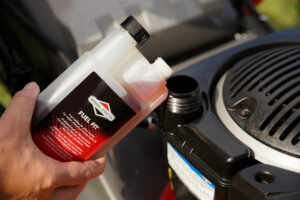
You can purchase Briggs & Stratton Fuel Fit® directly from our website. It’s a simple and effective way to protect your machinery from the harmful effects of ethanol.
2. Use High-Quality Two-Stroke Oils
- For two-stroke machinery, use high-quality oil at the recommended mixture along with Briggs & Stratton Fuel Fit®. This ensures proper lubrication, reduces emissions, and protects the engine from wear and tear.
3. Follow Proper Storage Practices
- Empty Fuel Tanks: When storing machinery, empty the fuel tank and run the machine until it stops to avoid stale fuel residue.
- Short-Term Storage Tips: Avoid leaving E10 fuel in your machine for more than 30 days without a stabilizer.
What’s Next for Your Machinery?
If you rely on petrol-powered tools for work or home use, taking these steps ensures your equipment remains in top condition. While E10 petrol is here to stay, its impact on garden machinery can be managed with proper care, the use of fuel stabilizers like Briggs & Stratton Fuel Fit®, and regular maintenance.
Key Takeaways:
- Add Briggs & Stratton Fuel Fit® to your fuel to protect the engine and fuel system.
- Use high-quality two-stroke oil for enhanced engine health and performance.
- Follow best practices for fuel storage to reduce long-term damage.
By taking proactive steps, you can save time, reduce costly repairs, and keep your garden machinery running smoothly all year round.





